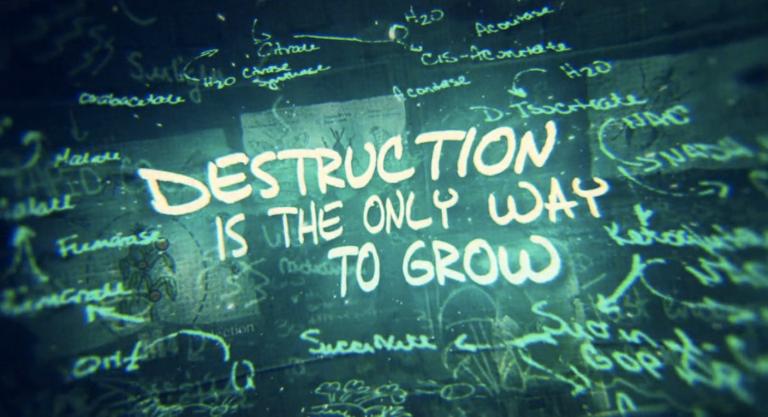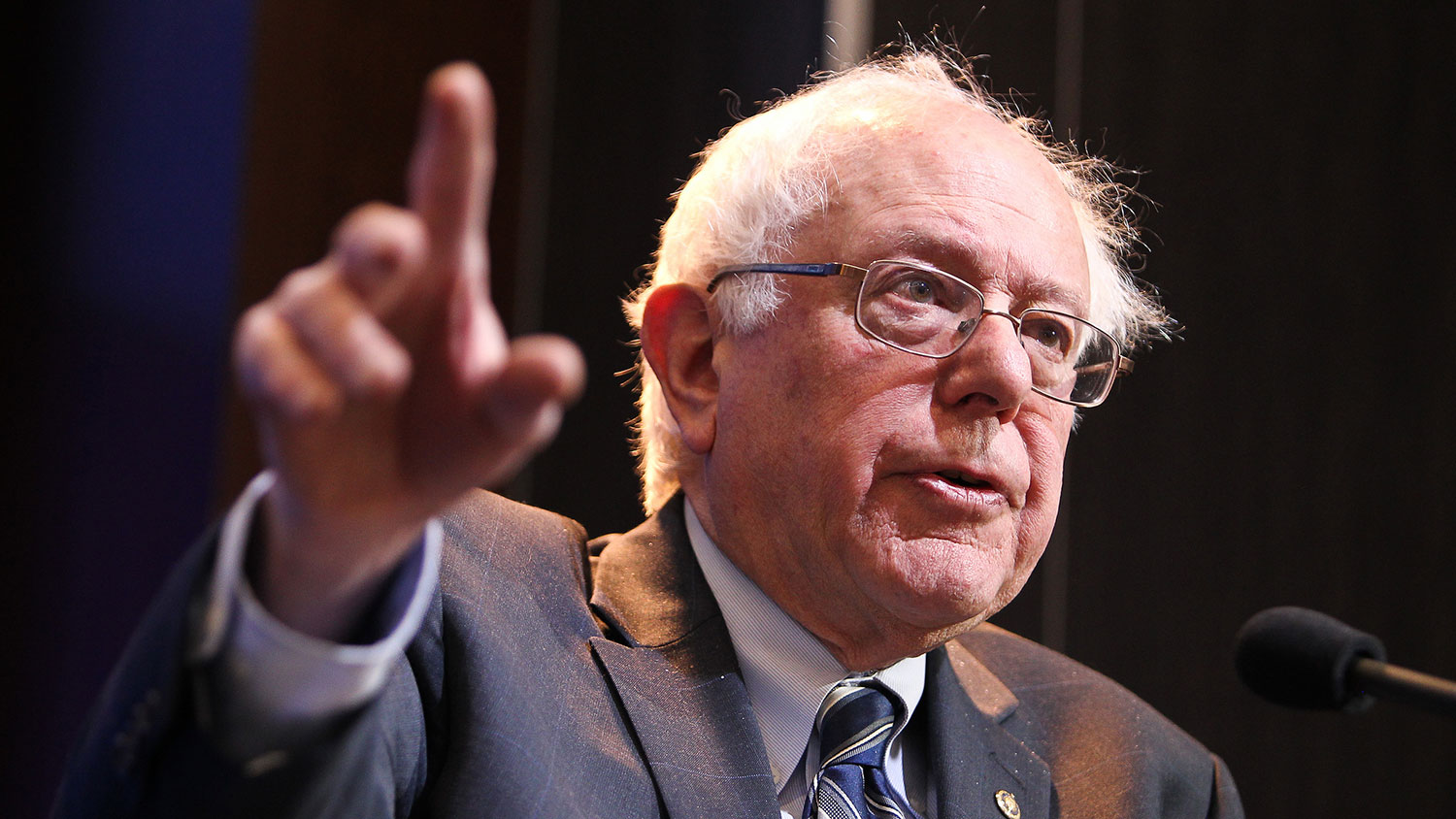One doesn’t think of Bernie Sanders, with his ambitious proposals to provide free public college tuition and Medicare for all Americans, as someone whose imagination is unduly constrained by political reality. Yet when it came to climate change in Tuesday night’s Democratic presidential debate, Sanders was surprisingly pessimistic. “Nothing is gonna happen unless we are prepared to deal with campaign finance reform,” said Sanders, “because the fossil fuel industry is funding the Republican Party, which denies the reality of climate change and certainly is not prepared to go forward aggressively.”
Is that true? Is climate action impossible without first getting corporate money out of politics? If so, that’s discouraging for climate hawks. Enacting campaign finance reform would be at least a five-step process: Elect a Democrat president. Luck into a conservative Supreme Court justice leaving the Court while that Democrat is president. Appoint a replacement. Have that judge join the Court’s existing liberal wing in overturning Citizens United v FEC. Then have the very same corporate-funded Congress vote to reform the system that got them elected.
The world cannot wait that long to deal with climate change. But it shouldn’t have to. Sanders’ analysis is overly pessimistic for three reasons:
1. He is thinking like a legislator, not a president. There is a lot the president can do to reduce emissions substantially in the next decade or so under existing laws. As I explained on Thursday, Sanders and Hillary Clinton have not yet explained in detail how they would use the Clean Air Act to reduce emissions. Will they regulate carbon emissions from other sources besides power plants, and tighten methane leakage regulation on fracking wells, as Martin O’Malley proposes? Will they ban fossil fuel extraction on federal land? As president, they could do those things, and more, thereby reducing emissions enough to meet the near-term goals we’ll lay out in any global climate agreement reached in Paris this December.
2. Republicans won’t always control Congress. When Democrats controlled the House of Representatives, in 2009, they passed a cap-and-trade bill. It died in the Senate because Republicans had decided to filibuster everything, and getting all 60 Democrats to vote for a climate bill to defeat the filibuster was impossible. The reason — that Democrats from coal or oil-rich states like West Virginia and Louisiana oppose climate action — would not vanish even after we reform campaign finance. Without campaign contributions from fossil fuel industries, senators from those states will still represent what their constituents demand and what they perceive to be in their states’ economic interest. The biggest structural issue impeding a climate bill in 2009-2010 wasn’t corporate money in politics, it was the filibuster and the Senate’s rural bias. Next time Democrats control both houses of Congress, they could eliminate the filibuster and pass climate legislation with a simple majority.
3. Sanders is right that the current Republican Congress is not going to pass climate legislation, but he is partially wrong about the reason. His view that Republican opposition to climate action is determined solely by fossil fuel campaign contributions is overly simplistic. Corporations and rich people with agendas often support candidates who already have their desired positions, especially now that most candidates’ positions are guided by partisan and ideological polarization. “Tom Steyer’s money doesn’t make Democrats care more about climate change, it’s just ideally electing more of them,” says Mark Schmitt, director of the New America Foundation’s political reform program and a former Senate staffer. “He could run ads about childcare and if it elects more Democrats it would be good for climate change.”
Thanks, in part, to the Tea Party’s army of highly partisan small donors, the GOP has become much more in thrall to its right-wing base and the right-wing media than to corporations. Fossil fuel corporations couldn’t stop Sen. John McCain (R-Ariz.) from backing cap-and-trade legislation when he was the Republican presidential nominee in 2008. McCain flip-flopped and opposed cap-and-trade a year later because his party’s base was marching rightward and he was going to face a right-wing primary challenge for his Senate seat in 2010. In general, fear of the right-wing media and grassroots base has grown to govern Republican congressmen and senators more than big business. And when the base and the corporations come into conflict, Republicans choose their base. “In 2009, the Chamber of Commerce endorsed the stimulus bill as a necessary boost to the economy,” notes Ezra Klein in The New York Review of Books. “Not one House Republican voted for it.”
“There are a lot of issues that, as they are aligned on partisan lines, the money doesn’t matter as much,” says Schmitt. Schmitt is a longtime advocate of campaign finance reform, but he sees corporate money in politics as the third biggest challenge to passing climate legislation, after opposition from the Republican base and from Democrats in fossil fuel-heavy states. “[Climate change] has become a polarized issue and it’s a regional issue, so, unlike health care, you’re kind of stuck both ways and money is not the biggest factor in unlocking that,” says Schmitt. “If you had full public financing you might get different people elected, but Republicans would probably still be responsive to their Republican constituents and business allies.”
Counter-intuitively, campaign finance reform experts such as Schmitt may actually be less inclined than environmental activists are to agree with Sanders. Perhaps anyone who has spent long enough battling for any cause against corporate influence has developed a healthy skepticism about its prospects and a reluctance to over-promise on what it can deliver. “If business, which funds most of the [political action committees], requires Republicans not to deal with climate change, then it will be very hard without campaign finance reform,” says Scott Slesinger, legislative director at the Natural Resources Defense Council. Congress hasn’t passed any environmental legislation in two decades, a fact Slesinger attributes to the influence of the business lobby.
This isn’t the same as saying campaign finance reform is a precondition to passing climate legislation; only that either Democrats need to control Congress or the business community needs to take a longer view of its economic interest with regard to climate change. If, say, manufacturers were thinking about the next 30 years instead of the next quarter, they might see the upside to shifting to a clean energy economy rather than one with ever-rising fossil fuel prices and increasingly unpredictable extreme weather. But the fact does remain that corporations and the wealthy exercise outsized power in our political system and that isn’t making climate legislation any easier to pass. As Slesinger says, “If the solution to climate change required tax cuts, we would have done it a long time ago.”



